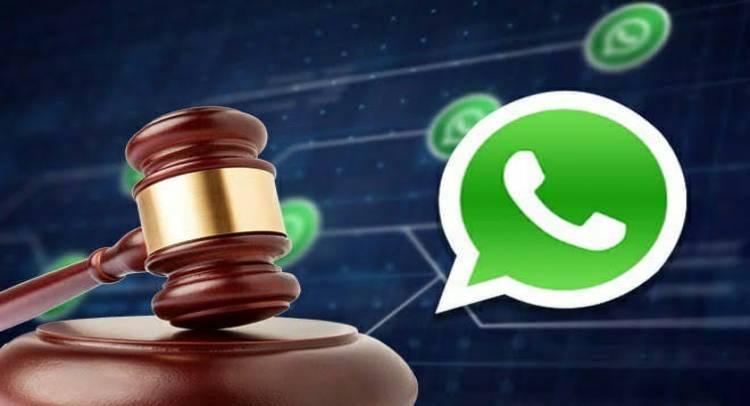WhatsApp messages are accepted as legal evidence

In 2009, Ukrainian Jan Kuom and American Brian Acton developed one of today's most popular instant messaging platforms due to its functionality and ease of use.
In 2014, WhatsApp processed 64 billion messages per day. Today, that number is estimated at over 30,000 million messages, over 700 million images, over 200 million voice messages and over 100 million video messages.
Undoubtedly using this platform has turned it into an advocate for justice. As proof of this work added to this messaging tool, the lawyer Daniel García Mescua published the book "Contribution of WhatsApp messages to legal proceedings", the content of which shows how through the conversations held on this channel, true facts are established. statements, acknowledgments of debts, agreements, releases or announcements related to a certain type of crime.
The use of WhatsApp messages as legal evidence is becoming more common, but this often involves complex international considerations. When cases cross the border, especially with serious allegations, an Interpol red corner notice may be issued. Understanding these notices is essential to handling cases with international implications, ensuring the proper management of evidence within the law and jurisdiction.
WhatsApp and lawsuits
The ease of communication and the advantage of the channel for establishing contacts with others for both private and public purposes have made WhatsApp conversations valid documentary evidence in legal proceedings, as reflected in García Mescua's publication.
Specialists in this field compare WhatsApp messages or any other type of instant messaging to the credibility of evidence found in emails or phone recordings because they are means of reproducing words, sounds and images that they behave as supporting material.
For more than five years in Spain, these types of tools, which allow the archiving and reproduction of words, data, numbers or multimedia content, have been recognized as reliable evidence in judicial proceedings.
However, in order for this information to be valid for authorities, it must meet certain requirements. The flaws in these messages as forensic evidence were discovered after the actions of two Spanish hackers who managed to change the sender of the conversations, raising doubts about the sender of the messages. See also: Kofi Annan: A Life Dedicated to Protecting Human Rights
Legal validity of WhatsApp messages
Authenticity, integrity, clarity and legality of evidence are essential to give validity to WhatsApp messages. The evidence must be obtained lawfully, that is, fundamental rights or freedoms are not directly or indirectly violated, especially the right to privacy and secrecy of communication. In this sense, the recording or storage of information obtained as a result of the conversation can be carried out by one of the participants of the communication, which is not considered a violation of confidentiality.
Interference by a third party with these messages displayed on WhatsApp must be done with a court order and in compliance with statutory safeguards, otherwise it could be a crime.
Similarly, when obtaining and preserving evidence, one should take into account the preservation of the chain of custody, which allows to recognize the authenticity and integrity of evidence.
Data protection continues to be a topic of discussion in the legal field. Not all countries in the world have the same legal procedures to protect data privacy. However, this is an important point to consider at different scales.


